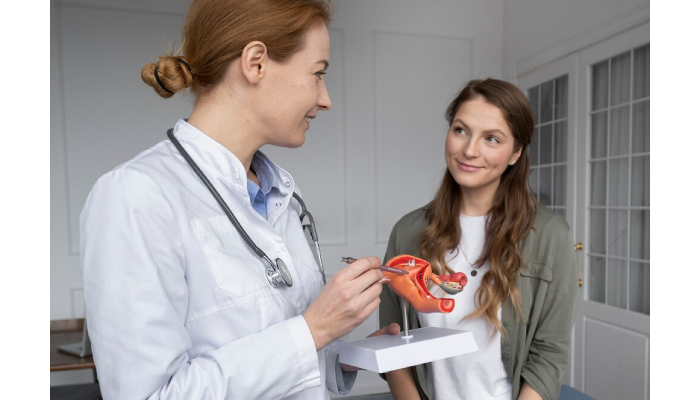
When it comes to fertility, many people focus on medical conditions or genetics as the main factors. While these certainly play a role, your everyday lifestyle choices can significantly impact your ability to conceive. If you are struggling to start or grow your family, understanding how your habits influence fertility is crucial — and seeking guidance from a trusted fertility specialist in San Diego can make all the difference.
In this article, we’ll explore the connection between lifestyle and fertility, covering key subtopics like diet, exercise, stress, sleep, environmental exposures, and when to seek professional help.
Diet and Nutrition: You Are What You Eat?
The food you eat directly affects your reproductive health. A diet high in processed foods, trans fats, and sugar can disrupt hormonal balance and reduce fertility. On the other hand, a nutrient-rich diet can improve your chances of conception.
Key Nutrients for Fertility:
- Folate: Essential for healthy cell division and embryo development.
- Omega-3 Fatty Acids: Help regulate ovulation and improve sperm quality.
- Antioxidants: Found in fruits and vegetables, they protect reproductive cells from oxidative stress.
Tips:
- Focus on whole foods: vegetables, fruits, lean proteins, whole grains, and healthy fats.
- Limit processed foods and sugary beverages.
- Consider a prenatal vitamin after consulting with a fertility specialist San Diego.

Exercise: Finding the Right Balance
Exercise is a vital part of a healthy lifestyle, but when it comes to fertility, balance is key. Both too little and too much exercise can harm reproductive health.
Moderate exercise helps:
- Maintain a healthy weight.
- Improve circulation.
- Balance hormones.
However, excessive exercise (especially intense endurance training) can lead to irregular periods or ovulation problems in women and reduced sperm count in men.
Ideal Activities:
- Brisk walking
- Yoga
- Swimming
- Light strength training
If you are unsure about what’s best for your fertility journey, a consultation with a fertility specialist in San Diego can help tailor an exercise plan that suits your needs.
Weight Management: The Fertility Connection
Being either underweight or overweight can negatively affect fertility. Research shows that:
- Women with a BMI under 18.5 may stop ovulating altogether.
- Women with a BMI over 30 often experience hormonal imbalances leading to irregular ovulation.
In men, excess body fat can lower testosterone levels and decrease sperm quality.
Tips for Healthy Weight:
- Aim for gradual weight loss or gain.
- Incorporate balanced nutrition and moderate exercise.
- Seek support if you struggle with disordered eating or body image issues.
Working closely with a fertility specialist in San Diego can provide personalized strategies for reaching a fertility-friendly weight.
Stress: The Silent Fertility Disruptor
Modern life is filled with stressors, and unfortunately, chronic stress can interfere with fertility in several ways:
- Disrupts hormone levels (especially cortisol).
- Impacts ovulation and menstrual cycles.
- Reduces sperm count and motility.
Stress-Reduction Strategies:
- Mindfulness meditation
- Acupuncture
- Counseling or therapy
- Journaling
- Breathing exercises
Some clinics even offer integrative programs combining stress management with fertility treatments. If stress feels overwhelming, speaking with a qualified fertility specialist in San Diego can open doors to supportive services that align with your journey.
Sleep: An Overlooked Fertility Factor
We often underestimate the importance of sleep, but poor sleep patterns can wreak havoc on reproductive hormones like leptin, ghrelin, and melatonin all of which impact fertility.
Sleep Tips:
- Aim for 7–9 hours of restful sleep per night.
- Stick to a consistent sleep-wake schedule.
- Create a calming bedtime routine.
- Limit screen time an hour before bed.
If you’re dealing with insomnia or erratic sleep schedules, this may be a good topic to discuss with your fertility specialist in San Diego during your initial evaluation.
Environmental Toxins: Hidden Fertility Risks
Your environment can expose you to chemicals that may lower fertility without you even realizing it. These include:
- Pesticides
- Plastics containing BPA
- Heavy metals
- Industrial chemicals
Protective Measures:
- Choose organic produce when possible.
- Avoid microwaving food in plastic containers.
- Use glass or stainless steel water bottles.
- Be mindful of household cleaners and cosmetics.
Since environmental exposures vary greatly from person to person, an experienced fertility specialist in San Diego can guide you on minimizing these risks tailored to your lifestyle.
Conclusion
Your daily habits play a powerful role in your reproductive health. By prioritizing good nutrition, balanced exercise, stress management, and toxin avoidance, you can create the best possible environment for conception. However, if lifestyle changes alone aren’t enough, seeking help from a knowledgeable fertility specialist in San Diego can provide you with the expertise and compassionate care necessary to achieve your dream of parenthood.